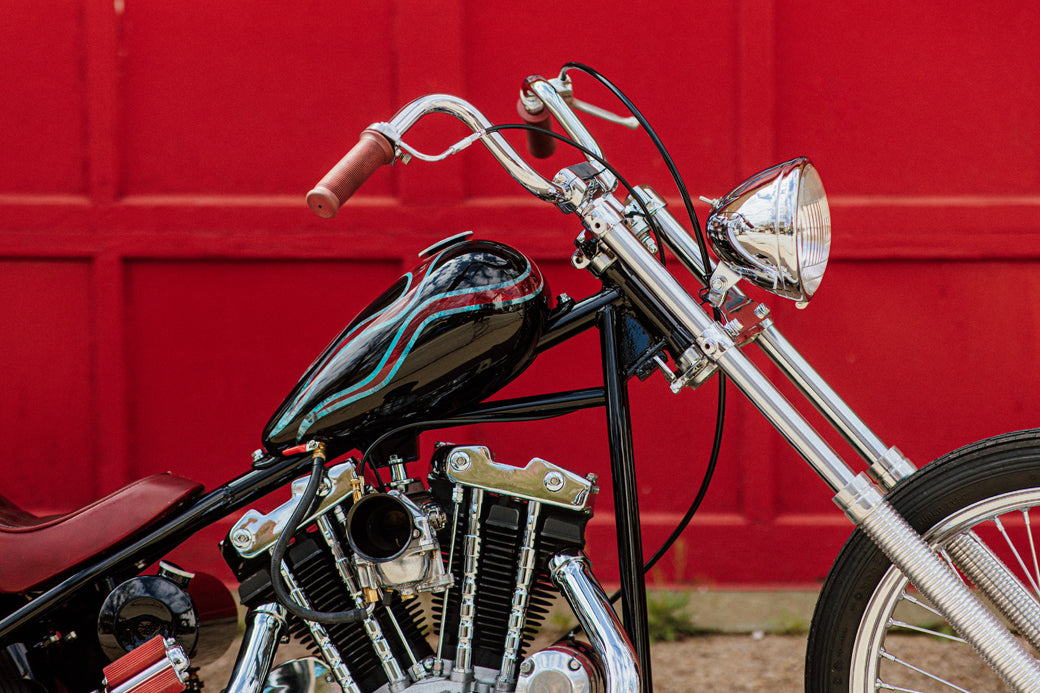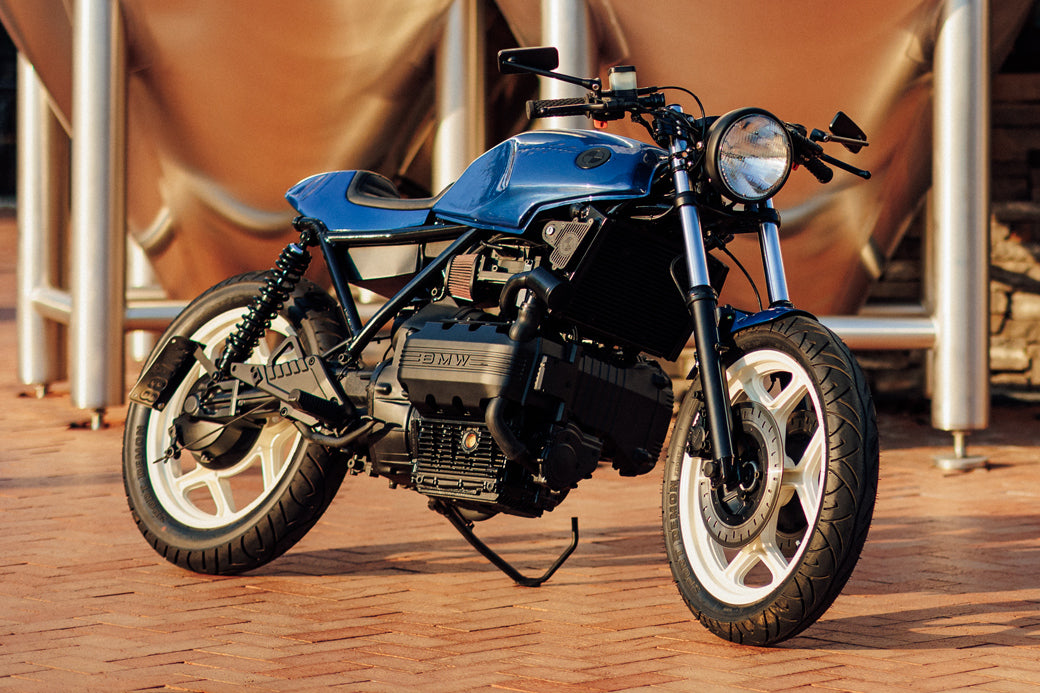
Carmen Gentile: I’ll be extremely generous with myself and say I got into frontline journalism because I have an unyielding zeal for excitement and adventure that sometimes leads me into situations that most right-minded people would outright avoid. Another less generous way of putting it: I have many screws loose.
Let’s say we split the difference.
Seriously, I do it for many reasons. It’s the most intense form of journalism you can do. More importantly, covering war is hard and doing something hard that is worthwhile is its own reward, no matter how corny or cliche that may sound. That’s the truth. I could wax poetic and profane all day about my unrequited love affair with war reporting. She’s the temptress I just can’t quit.
CG: I can rattle off the names of more than a dozen men and women I know who ride motorcycles and cover conflict. Maybe two dozen. Now, why could that be? Let’s see. Is it because both riding and war reporting can potentially take you right to, and beyond, that “Edge” of which you previously wrote so eloquently? I’m guessing that’s part of it. Now that I think about it, I started riding about the same time I started covering conflict, almost 20 years ago. Huh. I just had a minor psychological breakthrough in the pages of Pittsburgh Moto. Thanks for the mental assist, Kurt.


CG: My first moto experience in the Middle East was way back in 2008. I was embedded with U.S. forces in the Baghdad neighborhood of Sadr City, which at the time was a nightmarish maze of narrow streets where shootouts and bombings were an everyday occurrence.
So we’re walking through Sadr City and come upon some young kids on small motorbikes. I tell them I like their rides and one offers me his bike to take for a spin.
Now, I usually weigh about 210lbs. That day, wearing my body armor and helmet, I’m like 260. I get on this little bike and it feels like it’s about to buckle underneath me.
Despite the strain, the bike takes off when I pull back the throttle. I then race a few hundred yards down a street lined with curious onlookers, temporarily forgetting that I’m now completely alone in what is, at the time, probably the most dangerous place on earth.
After regaining my senses, I race the bike back to the patrol and apologize for my stupid behavior.
My most memorable Middle East motorcycling exploit has to be the great Mosul Ural Caper of 2017.
My friend and photographer Nish Nalbandian and I were covering the fighting between Iraqi forces and the Islamic State in the northern Iraqi city of Mosul. I don’t want to get into too many details, but simply put, it was the worst urban combat I’ve ever seen. Death and destruction was everywhere you looked. The Islamic State had taken complete control of the city and kept its citizens prisoner for more than three years. Just hell on earth.
Nish spotted the Ural and showed it to me. It was riddled with bullet holes, sidecar filled with old, toys, and the gas tank was crushed because a mortar struck his home and a piece of a wall fell on it.
We bought the bike for 400 bucks, had it fixed in a nearby shop for a few hundred more. Then, through bribery and the help of some friends, we got it out of Mosul and rode it back to safety in the nearby city of Erbil. We later produced a story about it.
I still need to figure out how to get it to the states.
CG: The Rust Belt and Appalachia, what we call “Postindustrial America” has long been mischaracterized by much of the national media, which somehow still thinks we’re nothing more than a collection of out-of-work steelworkers and coal miners hooked on opioids. I started Postindustrial because I want to correct the record and give authentic voice to the region.
That’s one reason.
The other was the 2016 election, which was a real kick in the groin for me as a native son of Postindustrial America. Watching Trump pander to people from the region with dogshit promises of reopening mills and mines was lunacy of the highest order. You just don’t flip the switch on a steel mill that’s been shuttered for 40 years. Folks here know that, yet they swallowed the Trump delusion whole because it tasted so good. Besides, I’m pretty sure most of the mills have been razed or turned into condos and movie studios.

CG: Riding bikes through Postindustrial America allowed us to take in more of the landscape and enjoy the travel in ways you just can’t in a car. For me, motorcycles are ideal for journalism assignments because they allow you that freedom and heightened sense of connection to the story and people. That’s why I try to make riding a part of every story I do these days.
CG: Some folks are optimistic, while others are worried about a still-uncertain and challenging future. I get both perspectives and find myself constantly vacillating between optimism and deep worry.
CG: In the mailboxes of hundreds of thousands, if not millions, of paying subscribers. Is that what you mean?
Perhaps you mean coverage-wise, in which case, I’d like to spend more time in Baltimore, which is an immensely intriguing city for many reasons, most of them not good, unfortunately. It’s a prime example of how Postindustrial cities have been decimated on so many fronts, losses that trickle down from generation to generation.
Yet, like so much of Postindustrial America, there are inspiring stories of hope and resilience coming out of Baltimore. And much of the city is downright gorgeous. Plus, the seafood scene there is insane. I’m salivating just thinking about it.
I also want to expand our coverage beyond the 13 states we currently identify as comprising “Postindustrial America.” There are important stories to be told both in the US and beyond. Without giving too much away, I’ve been kicking around some Postindustrial story angles from Europe, the Middle East and Latin America.
CG: By going to www.postindustrial.com and subscribing to the magazine. Subscribers get our print edition, daily digital edition, access to our entire podcast network, invitations to events, and more. It’s inexpensive and by far the best publication out there, only second to the one you’re reading right now, of course.




MATT CIPOLLONE
NISH NALBANDIAN
JUSTIN MERRIMAN







